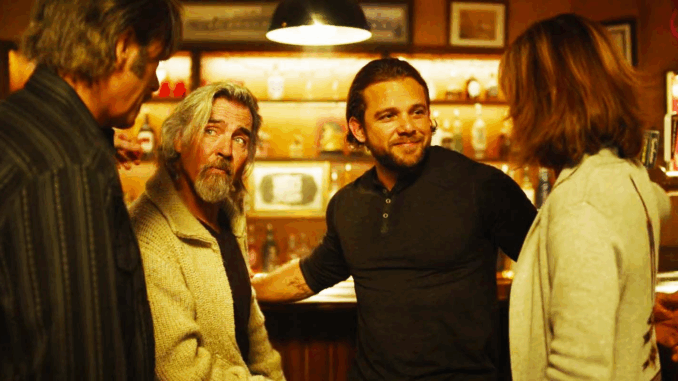
A Family Without Its Anchor
In the emotional aftermath of Vince Leone’s presumed death at the end of Fire Country Season 3, the series now prepares to explore its most intimate and volatile storyline yet: the fractured mother-son relationship between Sharon Leone (Diane Farr) and Bode Donovan (Max Thieriot).
For three seasons, Vince served as the emotional and moral anchor not just for Station 42, but also for his family. Without him, Sharon and Bode are left adrift, each drowning in their own grief—yet unable to reach one another.
Where other shows might focus solely on action or drama in the wake of a key character’s death, Fire Country takes a bold narrative path: turning inward, toward generational wounds, blame, silence, and the desperate need for connection.
Two Paths Through Grief: Silent Strength vs. Visible Collapse
Sharon’s grief is quiet, buried beneath duty and discipline. As a Cal Fire division chief, she chooses to remain at her post, issuing orders, maintaining routines, and preparing Station 42 for its next mission. But beneath her calm exterior lies a well of guilt, loneliness, and pain.
Bode, by contrast, is unraveling. Haunted by unresolved words with his father and triggered by the sight of Sharon pushing forward, he spirals into emotional volatility. He becomes increasingly aggressive, restless, and reckless—channeling his sorrow into confrontations and poor choices that echo his past.
This emotional asymmetry—one parent choosing control, one son caught in chaos—drives a wedge between them that deepens with each passing day.
The Weight of Unspoken Words

One of Fire Country’s signature strengths is its ability to let silence speak. Season 4 opens with Sharon and Bode avoiding one another, speaking only when necessary, each afraid that any real conversation might shatter what little remains of their fragile connection.
There are no hugs. No breakdowns. Just a void filled with history, regrets, and the ghost of Vince Leone.
As flashbacks begin to fill in the missing pieces—moments from Bode’s childhood, memories of Vince mediating past fights—viewers come to understand that this fracture between Sharon and Bode isn’t new. Vince had always been the bridge. Without him, there’s no safe middle ground. Only open wounds.
Guilt, Anger, and the Search for Blame
Bode’s guilt over Vince’s death is immense, though not entirely rational. He was part of the mission. He believes that if he had taken a different path, radioed sooner, disobeyed orders—his father might still be alive.
He begins to misdirect that guilt onto Sharon, blaming her for pushing Vince to take on too much, for staying in a position of command instead of retiring, for caring more about the job than the man behind the badge.
Sharon, meanwhile, is no stranger to guilt. Her past failures—ignoring signs of Bode’s addiction, denying him emotional support, and trying to “fix” him through discipline—are now amplified tenfold. Vince always believed Bode would make it. Without him, Sharon is alone in her doubt.
Conflicting Ideas of Legacy
One of the season’s most powerful thematic arcs lies in how both characters approach Vince’s legacy.
Sharon seeks to honor Vince through order and excellence, believing that holding the team together is the best tribute to the man he was. Bode, however, wants to grieve openly, to feel every jagged emotion. To him, stoicism feels like erasure.
This clash plays out in one particularly harrowing scene: Vince’s memorial at the firehouse. Sharon gives a poised speech about service and sacrifice. Bode interrupts her, breaking down mid-sentence, accusing the system of chewing up good men and spitting them out.
The fallout from this moment reverberates through several episodes.
A Long Road Toward Healing
Unlike other plotlines in Fire Country, this one offers no easy resolution. Reconciliation doesn’t come in the form of a hug or a sudden act of heroism. Instead, tiny gestures—a shared meal, a line of dialogue, a moment of hesitation—begin to slowly chip away at their divide.
By mid-season, Sharon finds herself seeking out grief counseling, perhaps at Bode’s suggestion. Bode, meanwhile, begins journaling about his father—not for catharsis, but as a way to remember him honestly, with all his contradictions and complexity.
In Episode 7, a moment of near-death for Bode in a fire brings Sharon to his side—not as a chief, but as a mother. For the first time since Vince’s death, she weeps. Not in front of the team. Not for the job. But for her son.
It’s not a reunion. But it’s a beginning.
